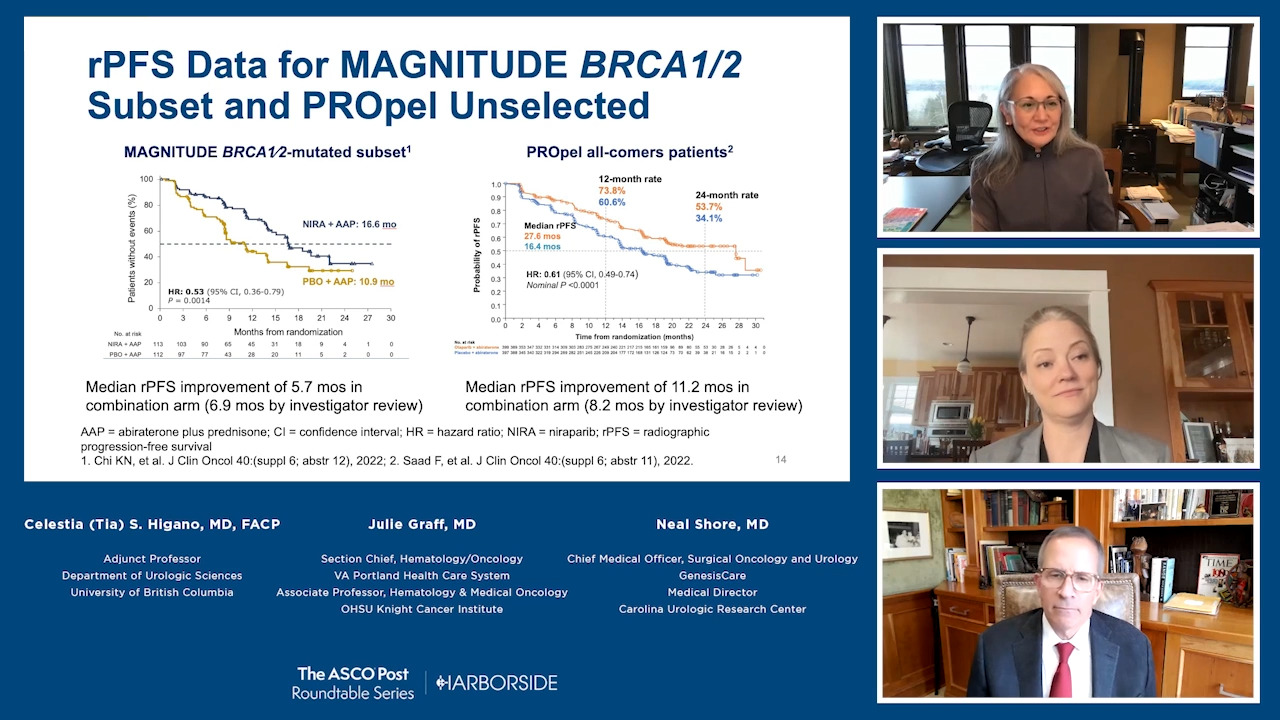Study Sheds Light on Mechanisms Driving Cancer Induced by Organic Solvent Used in Printing Industry
1,2-Dichloropropane (1,2-DCP) is a synthetic organic solvent used in the printing industry. It was linked to cholangiocarcinoma in 2013, when printing company employees in Osaka, Japan, exposed to 1,2-DCP were diagnosed with the cancer. Thereafter, the International Agency for Research on Cancer...
Investigational Blood Test May Help Improve Diagnosis and Monitoring of Glioma
Researchers at Massachusetts General Hospital (MGH) who previously developed a blood test for mutations in a gene linked to gliomas have now applied their technology to detect additional mutations—in this case, in the gene that codes for the epidermal growth factor receptor (EGFR). The advance,...
Does Disclosing Maternal Status Affect Children’s Health Behaviors?
Telling children about their mother’s risk of hereditary breast and/or ovarian cancer does not adversely influence the offspring’s lifestyle or quality of life in the long term, according to a new study published by McDonnell et al in the journal Pediatrics. The study looked at the mutation status...
Deciphering the Elusive Origin and Pathways of Brain Metastases
The effective treatment of patients with brain metastases is an unmet need because, until fairly recently, patients with brain metastases were excluded from clinical trials of systemic therapies. However, the emergence of molecular targeted therapies has allowed a new treatment approach in patients ...
Dual-Targeted Therapy Improves Outcomes vs Chemotherapy for Some Pediatric Patients With Low-Grade Glioma
The all-oral combination of dabrafenib plus trametinib—two targeted therapies—significantly improved the overall response rate vs standard-of-care chemotherapy with carboplatin plus vincristine in pediatric patients with BRAF V600 mutation–positive low-grade gliomas. The clinical benefit rate...
Outcomes in Pancreatic Cancer Surveillance Program for Carriers of Germline CDKN2A Pathogenic Variants
In a Dutch study reported in the Journal of Clinical Oncology, Klatte et al provided findings from a 20-year follow-up of a pancreatic cancer surveillance program including carriers of germline CDKN2A pathogenic variants. Study Details The study included 347 carriers in the Netherlands who...
Dabrafenib/Trametinib Combination Receives FDA Approval for BRAF V600E–Mutated Solid Tumors
On June 23, the U.S. Food and Drug Administration (FDA) granted accelerated approval for dabrafenib (Tafinlar) plus trametinib (Mekinist) for the treatment of adult and pediatric patients aged 6 years and older with unresectable or metastatic solid tumors with a BRAF V600E mutation whose disease...
American Cancer Society Investigators Present Studies on COVID-19 Pandemic, Racial/Ethnic Disparities, and Coverage for Genomic Testing
Investigators at the American Cancer Society presented results of several studies during poster sessions at the 2022 ASCO Annual Meeting. Summaries of a few of these studies are provided here. COVID-19 and Cancer Mortality According to a new study led by researchers at the American Cancer Society,...
NOTABLE Trial: Survival in Pancreatic KRAS Wild-Type Cancer Improved With Addition of Nimotuzumab to Gemcitabine
In patients with locally advanced or metastatic pancreatic cancer and KRAS wild-type tumors, novel treatment with the monoclonal antibody nimotuzumab, which targets the epidermal growth factor receptor (EGFR), plus gemcitabine significantly improved overall survival and other outcomes over...
Factors That May Predict Response to the Addition of Bevacizumab to Front-Line Chemotherapy in Patients With Endometrial Cancer
In an analysis from an NRG Oncology/Gynecologic Oncology Group phase II study (GOG-86P) reported in the Journal of Clinical Oncology, Thiel et al looked at outcomes in patients with advanced endometrial cancer treated with bevacizumab added to front-line chemotherapy. The investigators found that...
Study Identifies Three-Gene Signature That May Predict Response to Selinexor in Patients With Multiple Myeloma
Researchers have, for the first time, identified genes that may predict response to a therapy for a blood cancer that can have serious side effects for some patients. The therapy, selinexor, is part of the treatment armamentarium for multiple myeloma, but the ability to target its use to patients...
Germline Variants in Types of Cancer Without Hereditary Testing Guidelines
In a study reported in JAMA Network Open, Timothy A. Yap, MBBS, PhD, FRCP, and colleagues found that a substantial proportion of patients with cancer types that lacked hereditary testing guidelines harbored germline pathogenic/likely pathogenic variants. Study Details The study included data from...
Gilberto de Lima Lopes, Jr, MD, MBA, and Matthew Krebs, PhD, on NSCLC: Updated Results With Amivantamab-vmjw
Gilberto de Lima Lopes, Jr, MD, MBA, of the Sylvester Comprehensive Cancer Center at the University of Miami, and Matthew Krebs, PhD, of The University of Manchester and The Christie NHS Foundation Trust, discuss results from the CHRYSALIS study. The trial showed that the bispecific antibody amivantamab-vmjw demonstrated antitumor activity, even after prior treatment, in patients with non–small cell lung cancer that exhibits the MET exon 14 skipping mutation (Abstract 9008).
Michael J. Overman, MD, and Smitha Krishnamurthi, MD, on RAS Wild-Type Metastatic Colorectal Cancer: Refining Treatment Strategy
Michael J. Overman, MD, of The University of Texas MD Anderson Cancer Center, and Smitha Krishnamurthi, MD, of the Cleveland Clinic, review three abstracts, all of which enrolled patients with newly diagnosed RAS and BRAF wild-type metastatic colorectal cancer with left-sided primary tumors. The discussion centers on what the study results indicate about the use of an EGFR therapy and weighing the risk to quality of life from rash, in particular (Abstracts LBA3503, LBA3504, LBA3505).
Demethylation and Upregulation of the Oncogene SALL4 After Hypomethylating Therapy
In a study reported in The New England Journal of Medicine, Liu et al found that hypomethylating therapy was associated with upregulation of the oncogene SALL4 in a high proportion of patients with myelodysplastic syndrome. They also identified the gene region that is demethylated and responsible...
Triplet Combination Therapy Yields High Response Rates in Patients With FLT3-Mutated AML
FLT3-ITD–mutated acute myeloid leukemia (AML) is an aggressive disease usually resistant to available treatment options, resulting in high front-line response rates but short response durations and low survival rates. Quizartinib—a potent selective FLT3 inhibitor—can work synergistically with...
Real-World Uptake of FGFR-Alteration Testing and Gene-Targeted Therapy for Patients With Urothelial Cancer
In a study reported in a research letter in JAMA Oncology, Nimgaonkar et al found that less than half of patients with urothelial cancer who had received first-line platinum-based therapy underwent testing for FGFR alterations and that less than half of patients with susceptible alterations...
Targeted Therapy Emavusertib Shows Activity in Patients With MDS or AML With Specific Mutations
Mutations in SF3B1 and U2AF1 can drive overexpression of activated IRAK4—which regulates inflammation and promotes cancer cell growth and survival—and are associated with a poor prognosis for patients with high-risk myelodysplastic syndrome (MDS) and acute myeloid leukemia (AML). Emavusertib is a...
Differences in Germline Variant Spectrum Between Black and White Men With Prostate Cancer
In a study presented at the 2022 ASCO Annual Meeting (Abstract 10502) and simultaneously published in JCO Precision Oncology, Veda N. Giri, MD, and colleagues found that Black men with prostate cancer exhibited a lower frequency and narrower spectrum of germline pathogenic or likely pathogenic...
FDA Approves FoundationOne CDx as a Companion Diagnostic for Entrectinib
On June 9, Foundation Medicine, Inc., announced that it has received approval from the U.S. Food and Drug Administration (FDA) for FoundationOne CDx to be used as a companion diagnostic for the two indications of the tyrosine kinase inhibitor entrectinib (Rozlytrek). As a companion diagnostic,...
Neal D. Shore, MD, on Germline Genetic Testing and Its Impact on Prostate Cancer Clinical Decision-Making
Neal D. Shore, MD, of the Carolina Urologic Research Center, discusses his study findings, showing that germline genetic testing influenced care for patients with prostate cancer. Men whose genetic test was positive for a pathogenic germline variant received more recommendations for changes to follow-up and treatment, and for testing and counseling of relatives, than did patients with negative or uncertain test results (Abstract 10500).
Patient-Facing Screening Tool Could Increase Detection of Individuals With Lynch Syndrome
Nearly 1 million people in the United States are affected by Lynch syndrome, a hereditary cancer condition with markedly elevated risk of gastrointestinal, endometrial, and other cancers. Most of them, however, are unaware of it, or find out only after they have developed cancer. A screening...
Study Finds Genetic Mutations Differ Across Younger and Older Patients With Breast Cancer
Women younger than age 40 with advanced breast cancer often experience more aggressive disease and worse prognoses than their older counterparts. Knowing which types of genetic mutations these patients tend to have may inform treatment strategies and improve outcomes. In a recent study, researchers ...
Study Examines Ancestry-Specific Genetic Risk for Triple-Negative Breast Cancer
Although women of African descent experience a higher incidence and mortality from triple-negative breast cancer than women of other races or ethnicities, research findings presented by Hall et al at the 2022 ASCO Annual Meeting showed that the magnitude of gene-specific risks of triple-negative...
New Study Assesses Oncologists’ Ratings of the Importance of Health Insurance and Costs for Genomic Testing
A new study led by researchers at the American Cancer Society showed physician, practice, and patient characteristics were associated with oncologists’ ratings of the importance of patient health insurance and out-of-pocket costs for genomic testing in treatment decisions. The findings are being...
Study Points to Expanded Genomic Testing to Benefit Children and Young Adults With Cancer
New findings from researchers at Memorial Sloan Kettering Cancer Center published by Shukla et al in Nature Communications reported the results of using a comprehensive sequencing approach on 114 pediatric, adolescent, and young adult patients with solid tumors. The researchers found that their...
Matthew L. Meyerson, MD, PhD, on Lung Adenocarcinoma: Somatic Mutations, Germline Risk, and Ancestry
Matthew L. Meyerson, MD, PhD, of the Dana-Farber Cancer Institute, discusses study findings that suggest the variation in frequency of EGFR and KRAS mutations in lung cancer may be associated with genetic ancestry in patients from Latin America. The results indicate it may be possible to identify germline alleles underpinning this link. Finding a germline locus or loci may impact the development of lung cancers with these mutations and may improve lung cancer prevention and screening for populations of Latin American origin, as well as others.
Report Finds Uptake of Erdafitinib for Urothelial Cancer May Be Limited, Despite Positive Real-World Survival Data
The first bladder cancer drug targeting a cancer-driving gene mutation has been used relatively little despite its clear efficacy in a clinical trial, suggests a report published as a research letter by Nimgaonkar et al in JAMA Oncology. Researchers analyzed a large, nationwide database of cancer...
Next-Generation PARP1-Selective Inhibitor Offers Significant Benefits Over Older Predecessors in Treatment of Solid Tumors
The first-in-human, first-in-class trial of the next-generation PARP (poly [ADP-ribose] polymerase) 1–selective inhibitor AZD5305 suggests this drug may be a welcome advance over its U.S. Food and Drug Administration (FDA)-approved predecessors in the treatment of solid tumors with alterations in...
Nickolas Papadopoulos, PhD, on Multicancer Early Detection: Opportunities and Challenges
Nickolas Papadopoulos, PhD, of the Sidney Kimmel Comprehensive Cancer Center, discusses early detection as the key to reducing cancer mortality and the lack of tests for many malignancies. Liquid biopsies have the potential to screen for various tumor types, albeit with varying levels of sensitivity. Dr. Papadopoulos discusses his research on such blood tests, following patients prospectively to find the best combination of genetic and epigenetic biomarkers to increase sensitivity (Abstract PL02).
Ipilimumab/Nivolumab in Patients With Metastatic Pancreatic or Biliary Cancer and HRD Pathogenic Germline Variants
In a single-institution case series reported in a research letter in JAMA Oncology, Terrero et al found that the combination of ipilimumab and nivolumab was active in patients with chemotherapy-refractory metastatic pancreatic or biliary cancer with homologous recombination deficiency (HRD)...
Christine A. Iacobuzio-Donahue, MD, PhD, on Pancreatic Cancer: Novel Insights Into Genetics and Evolution
Christine A. Iacobuzio-Donahue, MD, PhD, of Memorial Sloan Kettering Cancer Center, discusses her research on the evolutionary features of advanced stage pancreatic cancers and the insights that may be used to help improve patient outcomes (Abstract PL05).
DESTINY-Lung01: Is Trastuzumab Deruxtecan the Answer for HER2-Mutant Lung Cancer?
The human epidermal growth factor (HER) family of receptors are a well-established therapeutic target. Indeed, seminal studies conducted nearly 2 decades ago identified a key association between activating mutations in the kinase domain of the epidermal growth factor receptor (EGFR, also known as...
DESTINY-Lung01: T-DXd Shows Durable Activity in Previously Treated Metastatic HER2-Mutant NSCLC
In a phase II trial (DESTINY-Lung01) reported in The New England Journal of Medicine, Bob T. Li, MD, PhD, MPH, of the Thoracic Oncology and Early Drug Development Service, Memorial Sloan Kettering Cancer Center, New York, and colleagues found that fam-trastuzumab deruxtecan-nxki (T-DXd) showed...
Association of Pathogenic Variants in Hereditary Cancer Genes With Additional Cancers and Non-neoplastic Diseases
In a study reported in JAMA Oncology, Zeng et al found that germline pathogenic variants in 23 hereditary cancer genes were associated with an increased risk of cancers not previously associated with the variants, as well as an increased risk of multiple non-neoplastic diseases. Study Details The...
Charles L. Sawyers, MD, on Transforming Patient Outcomes: The Future of Cancer Research
Charles L. Sawyers, MD, of Memorial Sloan Kettering Cancer Center, discusses the battle against treatment resistance and how to overcome it, as well as the power of observational clinical data in precision oncology, derived largely from his experience with Project GENIE, and the role of genetic ancestry (Abstract PL02).
Study Identifies Genetic Changes in Patients With Barrett’s Esophagus That Progresses to Esophageal Cancer
Using whole-genome sequencing to contrast genomic alterations in patients with stable Barrett’s esophagus compared to patients whose Barrett’s progressed to esophageal adenocarcinoma, Paulson et al reported that DNA changes presaging esophageal cancer can be spotted years before cancer develops....
Priscilla K. Brastianos, MD, on CNS Metastases: Understanding Their Evolution and the Clinical Implications
Priscilla K. Brastianos, MD, of Harvard Medical School and Massachusetts General Hospital, talks about her efforts to better understand how brain metastases evolve genomically and to test such agents as abemaciclib, paxalisib, and entrectinib, which may stop their growth. Palbociclib, a CDK inhibitor, has already shown potential benefit. A national cooperative group trial is underway in multiple centers to identify novel treatments for patients with brain metastases, who typically have a poor prognosis (Abstract SY38).
Timothy A. Yap, MBBS, PhD, on Ovarian, Breast, Pancreatic, and Prostate Cancers With Genetic Mutations: A First-in-Human Trial of AZD5305
Timothy A. Yap, MBBS, PhD, of The University of Texas MD Anderson Cancer Center, discusses results from the PETRA study, a first-in-class, first-in-human trial of the next-generation PARP1-selective inhibitor AZD5305 in patients with BRCA1/2, PALB2, or RAD51C/D mutations in advanced or metastatic ovarian cancer, HER2-negative breast cancer, pancreatic, or prostate cancer. Target engagement was demonstrated across all dose levels, and antitumor activity was observed in selected tumor and molecular subtypes.
Assessment of Cancer Risk Profile for Germline BRCA1 and BRCA2 Pathogenic Variants in Patients With Common Cancers
In a Japanese case-control study reported in JAMA Oncology, Momozawa et al found that germline BRCA1/2 pathogenic variants were associated with an increased risk of biliary tract, esophageal, and gastric cancers, in addition to an increased risk of cancers that have well-established associations...
First-Line Therapy for BRCA2-Mutated Metastatic Castration-Resistant Prostate Cancer
This is Part 3 of Updates in Prostate Cancer, a four-part video roundtable series. Scroll down to watch the other videos from this Roundtable. In this video, Drs. Celestia (Tia) Higano, Julie Graff, and Neal Shore discuss the first-line therapy for BRCA2-mutated metastatic castration-resistant prostate cancer. The patient is a 69-year-old man with new castration-resistant prostate cancer who was previously treated with androgen-deprivation therapy plus docetaxel for metastatic hormone-sensitive prostate cancer and has a known BRCA2 mutation. The faculty discuss their choices for first-line therapy for this patient, reviewing the current NCCN recommendations, the role of PARP inhibitors, and recent data from the PROpel and MAGNITUDE trials.
Maternal Malignancies May Be Identified Through Noninvasive Prenatal Test Results
In a Dutch study reported in the Journal of Clinical Oncology, Heesterbeek et al found that results of noninvasive prenatal testing for fetal aneuploidy screening using cell-free DNA derived from maternal plasma raised suspicion of maternal malignancy in a very small proportion of pregnant women....
Cheryl L. Willman, MD, on Cancer Genomic Sequencing in Tribal Nations of the American Southwest
Cheryl L. Willman, MD, of the Mayo Clinic Comprehensive Cancer Center, discusses the profound cancer health disparities among Native Americans, exacerbated by low rates of screening and limited access to care. Dr. Willman is heading an effort to promote community engagement in comprehensive genomic sequencing with the hope that researchers will discover novel mutations and genome-wide mutational signatures that can ultimately be translated to improved screening and therapy in this population (Abstract PL03).
Jia Luo, MD, on NSCLC: Clinicopathologic and Molecular Characterization of KRAS G12D–Mutated Disease
Jia Luo, MD, of Dana-Farber Cancer Institute, discusses the emerging class of cancer therapies for allele-specific KRAS inhibitors and the importance of their distinct clinical, genomic, and immunologic features. Because KRAS G12D–mutated non–small cell lung cancer is associated with worse responses to immunotherapy, Dr. Luo believes drug development will need to take these differences into account (Abstract 4117).
John Mascarenhas, MD, on the Implications of the FIGHT-203 Trial
John Mascarenhas, MD, Director of the Adult Leukemia Program at The Tisch Cancer Institute at Mount Sinai, New York, commented on the implications of the FIGHT-203 trial, which evaluated pemigatinib in myeloid or lymphoid neoplasms. Pemigatinib is an oral small-molecule receptor tyrosine kinase...
Study Shows Pemigatinib Activity in Treatment of Myeloid or Lymphoid Neoplasms With FGFR1 Rearrangement
In patients with myeloid or lymphoid neoplasms with FGFR1 rearrangements, pemigatinib produced high and durable response rates, despite patients’ extensive use of prior treatments or hematopoietic stem cell transplantation (HSCT), according to the early results of the multicenter phase II FIGHT-203 ...
Selumetinib in Children and Young Adults With Tumors That Have Activating MAPK Pathway Alterations
In a phase II trial (arm E of the NCI-COG Pediatric MATCH trial) reported in the Journal of Clinical Oncology, Eckstein et al found that the MEK inhibitor selumetinib showed little activity in pediatric and young adult patients with tumors harboring activating MAPK pathway mutations or fusions. As...
Study Findings Broaden Repertoire of Cancer-Relevant Genes
Following an analysis of over 12,000 human genes, research from Yale Cancer Center indicates there is cancer-relevant importance in a much larger proportion of human genes than current cancer research models suggest. Much of cancer biology research focuses on a few dozen well-studied genes called...
Turnaround Times in Melanoma BRAF Testing and Effect on Time to Treatment Initiation
In a single-center study reported in JCO Oncology Practice, Ceballos et al identified turnaround times for request and receipt of melanoma BRAF testing results. They also analyzed factors in differences in turnaround times and effects on time to initiation of treatment. The study included 66...
New Bioinformatics Platform Optimizes Selection of Combination Cancer Therapies
Researchers at The University of Texas MD Anderson Cancer Center have developed a new bioinformatics platform that predicts optimal treatment combinations for a given group of patients based on co-occurring tumor alterations. In retrospective validation studies, the tool selected combinations that...












